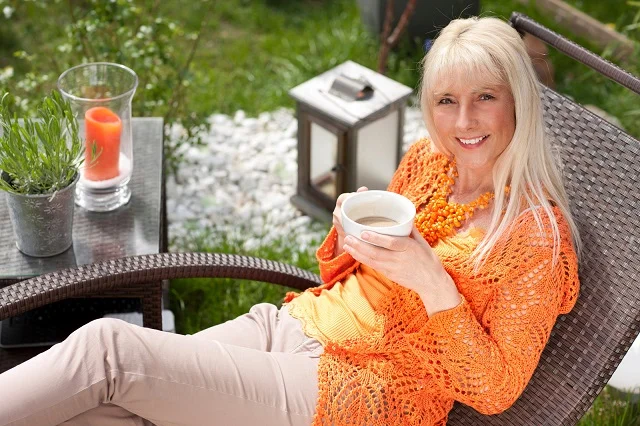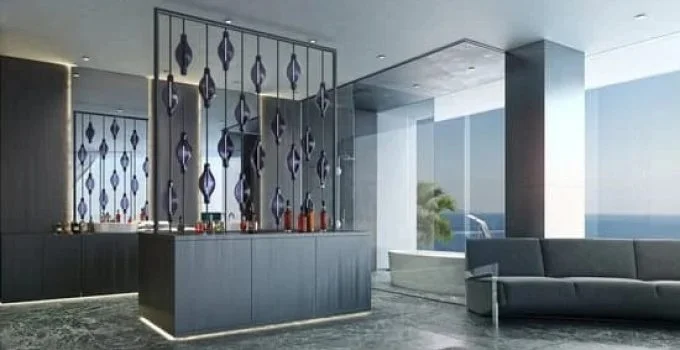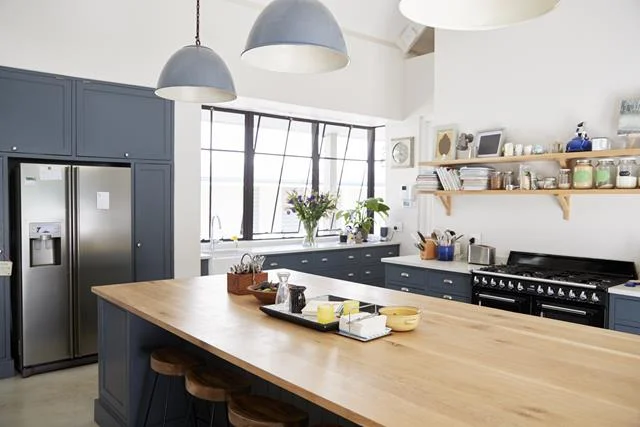How much does home decor cost? This is a common question for anyone looking to spruce up their living space. Home decor plays a crucial role in creating a comfortable and aesthetically pleasing environment, but it’s important to understand the costs associated with it.
From furniture to decorative accents, the expenses can quickly add up. In this article, we will explore the importance of home decor and provide tips and tricks for setting a budget when transforming your living space.
Your home is your sanctuary, and the way you decorate it can have a significant impact on your overall well-being. A well-decorated space not only reflects your personal style but also contributes to a sense of comfort and relaxation. Whether you’re looking to create a cozy living room or a stylish bedroom, the right home decor can make all the difference.
In this article, we will dive into the various aspects of home decor costs, including setting budgeting tips, understanding the prices of furniture and decorative items, comparing DIY projects to store-bought items, hiring professional services like interior designers or decorators, as well as hidden expenses that may arise during the decorating process. Investing in quality home decor is undoubtedly worth it, but knowing how much to budget for these improvements is essential.
Setting Budget
Setting a budget for home decor is essential to ensure that you can create the space of your dreams without breaking the bank. Here are some tips and tricks to help you determine your home decor budget:
1. Assess Your Finances: Before you start shopping for home decor, take a close look at your finances. Determine how much disposable income you have each month that you can allocate towards decorating your home.
2. Prioritize Your Needs: Make a list of the areas in your home that need the most attention when it comes to decor. Whether it’s the living room, bedroom, or kitchen, prioritizing your needs will help you allocate funds where they are needed most.
3. Research Average Costs: Take some time to research the average costs of home decor items such as furniture, decorative accents, and professional services like interior design. This will give you a starting point for setting realistic budget expectations.
4. Consider Long-term vs Short-term Investments: When setting your budget, consider whether you want to make long-term investments in quality furniture and decor pieces or if you prioritize temporary, budget-friendly solutions.
Ultimately, determining how much does home decor cost depends on personal preferences and financial capabilities. By carefully assessing your finances and doing thorough research on prices, you can set a realistic and achievable budget for creating the perfect living space in your home.
The Cost of Furniture
When it comes to home decor, furniture plays a crucial role in setting the tone and functionality of a space. But how much does home decor cost when it comes to furniture? The answer can vary widely depending on several factors.
Furniture Stores
One of the primary sources for purchasing furniture is from retail stores. Prices for couches, tables, and other furniture pieces can range from budget-friendly options to high-end designer pieces. It’s essential to consider the quality, material, and durability of the furniture when determining its cost.
Custom Furniture
For those looking for unique and personalized pieces, custom-made furniture is an option to consider. Custom furniture often comes with a higher price tag due to the craftsmanship involved in creating one-of-a-kind items tailored to specific design preferences.
Second-Hand and Vintage Options
To save on costs without sacrificing style, many people turn to second-hand or vintage furniture options. Thrift stores, antique shops, and online marketplaces offer a wide range of pre-owned furniture at affordable prices. With some creativity and DIY skills, these pieces can be refinished or reupholstered to fit your home decor aesthetic.
Ultimately, the cost of furniture for home decor can vary significantly based on individual preferences, quality standards, and purchasing decisions. It’s important to consider factors such as longevity, functionality, and style when evaluating how much you’re willing to invest in furnishing your home.
Decorative Accents
When it comes to home decor, decorative accents play a crucial role in adding personality and style to your space. From throw pillows and vases to artwork and sculptures, these items can truly elevate the look of any room. But how much should you expect to spend on decorative items? Let’s take a closer look at the costs associated with these finishing touches for your home.
Quality vs. Quantity
One of the first considerations when budgeting for decorative accents is whether you prefer to invest in a few high-quality pieces or opt for a larger quantity of more affordable items. High-quality decorative items such as handcrafted pottery or original artwork can certainly come with a heftier price tag, but they often contribute to a more sophisticated and unique look.
On the other hand, purchasing multiple smaller, budget-friendly decorative pieces can help you achieve a layered and eclectic aesthetic without breaking the bank.
Factors Affecting Costs
The cost of decorative accents can vary depending on several factors. The material of the item, its size, intricacy of design, and whether it’s handmade or mass-produced all play a role in determining its price.
For example, a small ceramic vase from an artisan studio might cost more than a similar-sized one from a big-box store due to the craftsmanship involved. Additionally, limited edition or designer decorative items are likely to be priced higher than their standard counterparts.
Budget-Friendly Alternatives
For those looking to save on decorative accent costs, there are plenty of budget-friendly alternatives available. Thrift stores, flea markets, and online marketplaces can be treasure troves for finding unique and affordable decor pieces. DIY projects are also an excellent way to save money while adding a personalized touch to your home.
By getting creative and thinking outside the box, you can find stylish decorative accents that won’t put a dent in your wallet. Remember that striking a balance between investment pieces and budget-friendly finds is key to creating a well-appointed space without overspending on home decor needs.
DIY vs Store-Bought
When it comes to decorating your home, one of the biggest decisions you’ll face is whether to invest in store-bought decor items or take on do-it-yourself (DIY) projects. Both options come with their own set of costs and considerations, so it’s important to weigh the pros and cons before making a decision. Below, we’ll compare the costs of DIY home decor projects to purchasing decor items from stores.
1. Cost of Materials:
One of the first things to consider when comparing DIY projects to store-bought decor is the cost of materials. When taking on a DIY project, you’ll need to factor in the cost of materials such as paint, brushes, wood, fabric, and any other supplies needed for your project. On the other hand, purchasing decor items from a store means you’ll be paying for the finished product, without having to source and purchase materials separately.
2. Time and Effort:
Another consideration when deciding between DIY and store-bought decor is the time and effort involved. DIY projects often require a significant time investment, especially if you’re not already familiar with crafting or building. Additionally, there may be a learning curve or trial-and-error process that adds to the overall effort required for a DIY project.
3. Customization:
One advantage of DIY home decor projects is the ability to customize your creations to perfectly suit your personal style and preferences. Store-bought items may not always offer the level of customization that can be achieved through a DIY approach. Consider how important it is for you to have unique, personalized decor in your home when making this comparison.
Ultimately, whether you choose DIY or store-bought decor will depend on your budget, time constraints, and desire for customization in your home. By carefully considering these factors alongside the costs involved in each option, you can make an informed decision that aligns with your preferences and lifestyle.
Hiring a Professional
When it comes to home decor, some people prefer to hire a professional interior designer or decorator to help them achieve the look they want. However, many homeowners are often unsure about how much hiring a professional will cost. The cost of hiring an interior designer or decorator can vary widely depending on several factors including the scope of the project, the experience and reputation of the professional, and the location.
On average, interior designers and decorators charge anywhere from $50 to $200 per hour, with the total cost of a project typically ranging from $2,000 to $12,000. Some professionals may also charge a flat fee for their services, which can range from $1,000 to $5,000 or more. It’s important to keep in mind that these costs are just estimates and can vary significantly based on individual preferences and requirements.
Before hiring a professional, it’s crucial to set a clear budget and communicate your expectations upfront. This will help ensure that both parties are on the same page regarding costs and deliverables. Additionally, be sure to ask for a comprehensive breakdown of all potential expenses before making any commitments.
In some cases, hiring a professional may seem like an added expense, but their expertise can ultimately save you time and money by helping you avoid costly mistakes and make informed decisions about your home decor. If you’re considering hiring an interior designer or decorator, it’s worth getting multiple quotes and conducting thorough research to find the right fit for your needs.
| Cost Category | Average Cost Range |
|---|---|
| Hourly Rate | $50 – $200 |
| Total Project Cost | $2,000 – $12,000 |
| Flat Fee | $1,000 – $5,000+ |
Hidden Costs
When budgeting for home decor, it’s important to consider the hidden costs that may arise during the process. While you may have a set budget for purchasing furniture and decorative items, there are several unforeseen expenses that can add up. From unexpected repairs to additional materials, it’s essential to be prepared for these hidden costs when decorating your home.
One of the most common hidden costs when it comes to home decor is the need for repairs or modifications. For example, if you’re planning on hanging new artwork or shelves, you may need to invest in additional hardware or tools. Similarly, when painting a room or installing new flooring, there may be underlying issues such as water damage or uneven surfaces that require professional attention and added costs.
Another unforeseen expense to consider is the need for additional materials. Whether you’re undertaking a DIY project or hiring a professional, it’s not uncommon for extra paint, fabric, or other materials to be required. This can significantly impact your overall budget and should be factored in from the beginning.
In addition to repairs and extra materials, it’s crucial to consider the cost of any unexpected professional services that may be needed. For instance, if you encounter electrical or plumbing issues while decorating, you’ll likely need to hire a specialist to address these concerns. It’s wise to set aside a portion of your budget for such unforeseen expenses so that you’re not caught off guard when they arise.
| Hidden Costs | Unforeseen Expenses |
|---|---|
| Repairs/Modifications | Additional hardware/tools |
| Additional Materials | Extra paint/fabric |
| Professional Services | Electrical/plumbing issues |
Conclusion
In conclusion, the value of investing in quality home decor cannot be overstated. While it may seem daunting to determine how much does home decor cost, and budget for it, the benefits of creating a comfortable and stylish living space are well worth the effort. Quality home decor not only reflects your personal style but also contributes to a welcoming atmosphere for yourself and your guests.
By setting a realistic budget and considering all potential costs, you can make informed decisions about where to invest in your home decor. Whether it’s purchasing high-quality furniture, adding decorative accents, or even considering DIY projects, there are plenty of options to enhance your living space within your budget.
Ultimately, investing in quality home decor is an investment in your overall well-being and satisfaction with your living environment. By carefully planning and budgeting for home decor expenses, you can create a space that truly reflects your personality and offers comfort and beauty for years to come. So, while the cost of home decor may vary depending on individual preferences and choices, the value it adds to your everyday life is immeasurable.
Frequently Asked Questions
Why Is Home Decor So Expensive?
Home decor can be expensive for several reasons. Quality materials and craftsmanship often come with a higher price tag, especially for custom or handcrafted items. Additionally, the cost of trendy or designer pieces can drive up the overall expense of decorating a home.
How Do You Determine a Decorating Budget?
Determining a decorating budget involves assessing your financial situation and setting realistic expectations for how much you’re willing to spend on home decor. Consider factors such as your income, savings, and any other financial obligations you may have before determining a reasonable budget that aligns with your priorities.
What Is the Gross Margin for Home Decor?
The gross margin for home decor varies depending on the specific products being sold and the retailer’s pricing strategy. In general, it represents the difference between the cost of goods sold and the selling price, expressed as a percentage. Retailers typically aim for a healthy gross margin to cover their operating expenses and generate profits.

Hello, lovely readers! I’m Sheila Collins, and I’m delighted to be your trusted guide on this exciting journey of home improvement, design, and lifestyle. As the founder and editor-in-chief of Home Guide Blog, I’m passionate about all things related to homes, and I’m here to share my knowledge, experiences, and insights with you.





